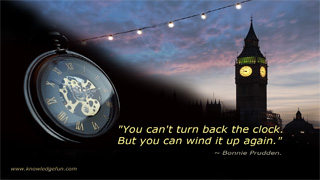Check answers to other frequently asked questions:
Be alert to what's going on in your neighborhood. If you see trash lying about, abandoned cars on the street, graffiti on the walls, do something about it. Safety is community effort. Keep your eyes open and use common sense. If there isn't Neighborhood Watch program in your neighborhood, contact your local police to find out how you can get one started.
Residents in the community discuss security concerns and review recent crime events in their area, whether it's through regular meetings or informal conversations. Sharing information through newsletters or a designated co-ordinator, residents learn how to protect their homes from burglars. They also actively watch one another's property.
Like Neighborhood Watch, Crime Stoppers gives people the opportunity to contribute to safety in their community. They can provide valuable information anonymously to police and help solve crimes.
Truck Drivers should execute basic safety practices like: protecting information about freight and its movement, always removing keys and lock vehicle, no matter how short a time they are leaving the vehicle, and be aware of possible surveillance being conducted on them and their cargo. Read more...
Cooking is the leading cause of home fires. Unattended stovetops and ovens are the primary cause in the kitchen. So, if you are simmering, baking or roasting food, use timer for reminder, check food regularly, and remain in the kitchen. When you are cooking for longer periods of time, don't forget to use the exhaust fan or vent above your stove to help prevent carbon monoxide (CO) from collecting inside your home.
The best way to reduce carbon monoxide poisoning is to ensure all fuel-burning devices are properly installed and serviced. Carbon monoxide is commonly produced by poorly maintained or improperly installed gas furnaces, fireplaces, water heaters or gas stoves. It is very important to have a qualified technician inspect and service all your fuel burning devices annually.
An approved carbon monoxide alarm, also known as CO alarm, should be installed on each level of your home. A common mistake that homeowners make is placing alarms too close to the furnace. Instead, install CO alarm in the basement hallway, just outside the furnace room. Also, it is very important to install a CO alarm on the floors where there are the most vents and in close proximity to the sleeping areas, because CO can travel upstairs through the ductwork and vent in your home. Do not install CO alarms near windows or vents, bathrooms or too close to heating or fuel-burning appliances or smoke alarms (unless it's a combination alarm).
Make sure to check and test your existing alarms every two to three months and replace batteries at least once a year. Put a reminder in your calendar and check and follow manufacturer's instructions to find out detailed instructions about your unit and when it should be replaced. Usually they have a lifetime of anywhere between 5 to 7 years.
Natural gas is colorless, odorless, and non poisonous. A smell, like rotten eggs, is added to it for consumers safety, so they can detect it even when the smallest amount escape. If you smell gas, call your gas company immediately. If you are indoors and the smell is weak, open doors and windows to get fresh air into the rooms. If the smell gets stronger, leave the building immediately, leaving everything open to allow air to enter. If the smell is strong or a "hissing" noise can be heard, leave the building immediately, leaving everything open to allow air to enter and don't use telephone or a cellular near that area. Call your gas company from a neighbor.
If you think your identity have been stolen, take the following steps:
1. Contact your local police force to file a report.
2. Advise your bank and other financial institutions of the identity theft.
3. Contact credit bureaus - so they can set up a credit report in your name and attach a fraud alert to that file.
4. File a report with the Anti Fraud Centre.
5. Contact your government to begin the process of applying for a new documents.
1. Contact your local police force to file a report.
2. Advise your bank and other financial institutions of the identity theft.
3. Contact credit bureaus - so they can set up a credit report in your name and attach a fraud alert to that file.
4. File a report with the Anti Fraud Centre.
5. Contact your government to begin the process of applying for a new documents.

"Be more concerned with your character than your reputation, because your character is what you really are, while your reputation is merely what others think you are."
~ John Wooden







